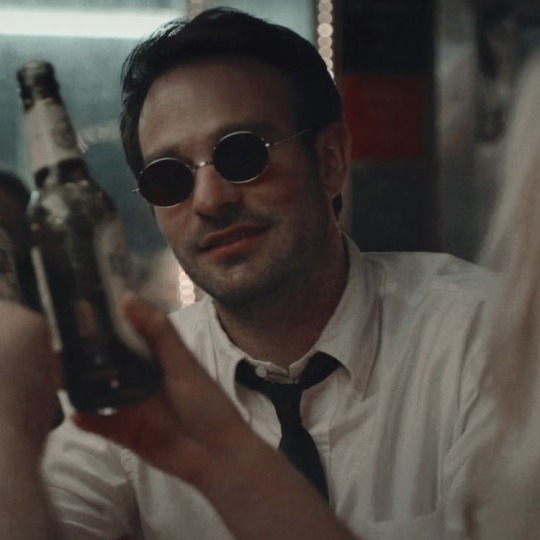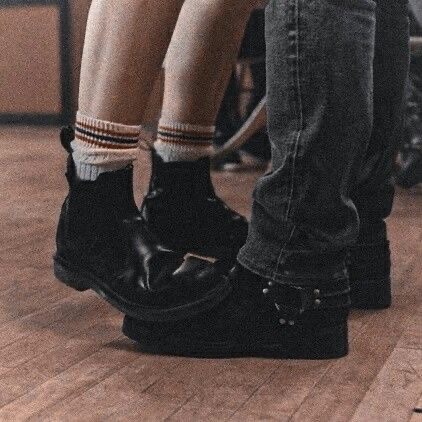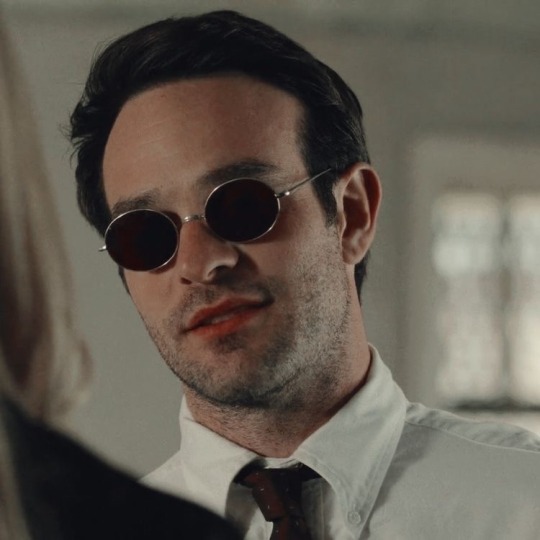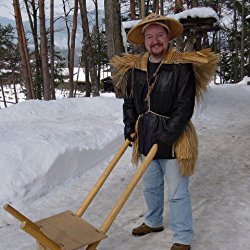#also i very much believe matt deserves a cat or two ok
Note
oooo can i have a moodboard for matt??? maybe um um ummmmm soft evenings with him? i picture eating dinner in his apartment and snuggling but whatever you’d imagine soft evenings w matt entail 🥰









i think it would be very soft, cooking way too late, dancing around his stupid large living room, type thing !!
#also i very much believe matt deserves a cat or two ok#sorin answers#matt murdock#matt murdock moodboard
20 notes
·
View notes
Text
ok last post for now. IN LIGHT OF CAPCOM SAYING A FEW NEW GAMES WOULD BE OUT BY MARCH 2023. these are my top 10 IDEAL ace attorney games ranked in no particular order by how bad i want them to be real. this will be a long post so it's under the cut. spoiler for basically every ace attorney game
Athena Cykes: Ace Attorney (Investigations). Simon gets to be her weird little girl and they make funny banter about random people in that way you can only have with a bruncle/neister bff relationship. This game is ideal because it's like a kind cat owner who has a very mean cat that they keep promising won't bite you but the cat has not only already bitten you but also summoned a fully grown hawk to attack you. Simply fantastic game material. This is also ideal because Athena would get to be the head of her own game for once.
Ema Skye: Ace Detective (Investigations). In addition to the last post, I am so incredibly fond of the original idea for the investigations series to be about Ema. Let Ema have Kay as an assistant, or maybe Klavier. Lana gets to cameo and take on the Beanix in AA4 role where she shows up to give some cryptic advice and then disappears.
Apollo Justice: Ace Attorney 2. I cannot get enough of this game. Please give me more. I love it so uncontrollably much. 10/10 best game of the century. Please give Apollo an actually coherent arc involving what happened with Kristoph and the setup involving the black psyche locks instead of a game that was Still Just About Phoenix All Along, Actually. Apollo Justice is such an incredible setup for a second trilogy that just... fails to deliver. Please follow through with these ideas. The no-spoiler rule has been the WORST thing to happen to the Ace Attorney franchise. Phoenix is an afterthought in this game.
Sholmes and Mikotoba: Reminiscence. I really want a game just about their escapades. I have not even played DGS yet I am so fascinated with these two and their history. It doesn't even have to be a full game, just like a DLC case or two. If this already exists please let me know but don't spoil me as I'll be liveblogging my playthrough of DGS and DGS2 I believe.
Sebastian Gets His Own Thing Because I Like Him: The Game. Speaks for itself. I really really like Sebastian.
The Prosecutors Office: The Game. I am desperate to see everybody interacting in one confined space while the Paynes stand there silently, unnoticed. Ideally, this will be in the art style of Investigations with overworld pixel sprites. It will be fully comedic. I can only survive off of fanfiction for so long.
Mia Fey: Ace Attorney. Here's the unsurprising entry. I would like to see more of Mia and Diego's relationship and would really like to see Feenie co-counsel. I think Lana should be the prosecutor because Mia has two hands and she is a bisexual girlboss. Lanamiego trueness. Lana and Diego do not get along but in the funny way.
Jailbreak. I really want a small story (fits better as dlc, probably) about the main villains in prison. I do understand that this is unrealistic and entirely inspired by fanart I've seen, but look me in the eyes and tell me it has absolutely no comedic potential. Exactly. It'd be hilarious. Kristoph and Matt Engarde would NOT get along and I live to see the day they inevitably strangle each other while Dahlia laughs from the corner, timeline be damned. Ft. Simon cameo where he looks wildly unimpressed by everything happening around him.
Trucy Wright: Magician for Hire. I love the idea of Phoenix being wildly supportive of his daughter's dreams, and I also really want Trucy to be able to express how she actually feels about the Gramaryes. She deserves better than the treatment the games give her. I think that she, Kay, and Ema should get to be the second-coming of the Yatagarasu.
Franziska von Karma: INTERPOL. I really want a game about Franziska, Lang, Interpol, and most importantly, please give us a Colias cameo. You don't understand. Colias Palaeno showed up for one case in one game and I somehow found him the funniest little man ever. I want a Colias cameo. Franziska also deserves to be able to lead her own game, as she has been trapped in Capcom's basement for too long. Lang is her weird little girl. Third DeLites cameo! I love the DeLites.
There we have it, my AA game ideas. I know NONE of these will become real, but a guy can dream. Thanks for reading!
#aa#ace attorney#btw i am klavier#slash gensrs#just separating names for the sake of clarity#these ideas tickle me they're so funny to think abt#but some are legitimate ideas i really like#like the athena and simon one#athena cykes#simon blackquill#apollo justice#klavier gavin#trucy wright#kristoph gavin#dahlia hawthorne#matt engarde#shi long lang#franziska von karma#phoenix wright#ema skye#kay faraday#COLIAS PALAENO#i cant stress that one enough. COLIAS PALAENO#mia fey#lana skye#diego armando#sebastian debeste#that is everyone i think#yeesh!#luca speakin
230 notes
·
View notes
Text
February Alban Lake Spotlight
Mike Morgan, Author

For our very first interview, we have Mr. Mike Morgan, a prolific and excellent author. He was kind enough to take time to answer our questions; but first, a quick bio for Mike:
Mike Morgan lives in Iowa with his wife, two children, and increasingly infirm cat. After careers in the UK, Japan, and Texas involving accountancy, freelance illustration, non-fiction writing, and teaching, Mike now does improbably complex things on computers for a living. When he's not worrying about the cat or tidying up his kids' toys, Mike gets overwrought about politics and attempts to write short stories. It's possible his two hobbies get muddled up from time to time. He has written for several publishers in the UK and the USA, with pieces in anthologies, comics, and magazines. Follow him on Twitter as @CultTVMike, where he posts about all things sci-fi. Oh, OK, it's mostly Doctor Who.
My website is: https://perpetualstateofmildpanic.wordpress.com/
My latest project is this month's Outposts of Beyond.
And on to the interview . . .
Q: When did you first realize you wanted to be a writer?
A: I've wanted to be a writer for as long as I can remember. I looked at book covers as a young child, maybe five or six, and thought, "I want my name on a book." When I got into comics with 2000AD and then Star Wars Weekly, this would be when I was 7, that desire spread to wanting to be in the credits boxes in comic books, too. Unfortunately, as I got older, it became apparent that selling work wasn't going to be as easy as I'd initially thought.
I tried for a sustained period in my twenties to break into comics, but never got anywhere. At one comics convention in Bristol, while hauling my portfolio around, I got chatting with Matt Brooker, who was brutally honest with me. "Look," he said, "There's nothing particularly wrong with the way you draw, but there just aren't any openings. We hire on maybe one or two new freelancers a year and they have some quirk. You draw well, but there's nothing unique. To develop that style, you need to put in thousands of hours of practice, and you're not going to get paid for that. You don't strike me as independently wealthy, so I doubt you can afford to do it for free. So..."
He was right. I was dirt poor. I got a job in accountancy, which I hated. But at least I could go back to affording food.
Later, after years of doing things I loathed, and then teaching for several years in Japan, I immigrated here to the U.S. Starting a new career in Texas, I worked for seven years as a technical writer and editor, which helped me fine-tune my knowledge of English grammar and punctuation and gave me first-hand insight into how hard it is to express complex ideas in plain, no-nonsense sentences. I got enough feedback to sink a fleet of Titanics and developed a tough skin to criticism. I also learned how important it was not to treat my fellow writers the way I was treated, and I became a mentor to some of the newer team members. Although the working environment was hostile, I did love the act of writing and I found joy in helping others improve their written work.
While all that was going on, I was continuing to put out one or two pieces of my own writing. Teaching in Japan gives you a lot of spare time, so I'd started floating a few things past publishers. Moving to Texas, I was determined to keep that up, but stuck in a car for three or four hours a day on a hellish commute, working tons of extra, unpaid hours, and starting a family didn't leave a lot of spare time. It was only with our move to Iowa, where I still am now, that I found a better work-life balance and was able to kick the writing into high gear. To my inordinate surprise, I discovered that publishers wanted to print my short stories. Not only that, but readers showed every sign of liking them. I was flabbergasted.
I look back now and I see my name on a book cover and my name in a comic book credits box and I'm glad I never completely gave in. One of my best friends, Kath, said this to me years ago and it stuck with me: "What I like about you, Mike, is that you keep on trying." I'm sure she's forgotten ever saying that to me, but I remembered, and I've tried to stay that way.
Q: What would you say is your interesting writing quirk?
A: Oh, a 'quirk'! I have yet to develop one with my drawing, but with my writing...? Editors have often told me, in withering tones, that I over-write. You only have to glance at the length of this interview...
Also, as part of over-egging a box full of puddings in every story, I tend toward the proliferation of pleonasms. And uncalled-for alliteration.
If you catch me doing it, slap me.
Q: What do you like to do when you're not writing?
A: I watch lots of science fiction and read comics. I really enjoy reading stories to my two kids at bedtime, too. Honestly, with two young kids in the house, I spend a lot of time taking endless delight in everything they say and do. I try to carve out a few moments every day to remind my wife how much I appreciate her.
Q: How many books have you written? Which is your favorite?
A: I've had 10 short stories published professionally, with two more coming out in the next couple of months. A couple of those were my Titanville stories, which were published together in an e-book by Nomadic Delirium Press, getting me my first solo front-cover credit. I have a dozen more stories in slush piles as we speak, so one or two more will probably work their ways through to acceptance this year – that seems to be the typical ratio of stories sent to stories accepted.
I've also had a few stories in charity anthologies, and a couple of poems (one was about Star Trek and was printed by Iron Press in a collection sold throughout a major high-street chain of bookshops in the UK), a few non-fiction articles about the long-running BBC TV series Doctor Who in various tomes, and a comic strip script in the British small press comic Futurequake. Another comic script is being drawn now, as it happens, for Futurequake. We're hoping it'll be included in the Spring issue, but we'll see how that goes.
Oh, and I worked for a short while at an online word mill, putting out articles about sci-fi. You can find them at WhatCulture.com. They accumulated about three million page-views, I think.
Q: What inspires you to write?
A: I am drawn to the act of wrenching something into existence through the blunt application of imagination and willpower. I am compelled to create. For better or worse, you guys are on the receiving end of that compulsion.
When it comes down to deciding what I'm going to write about, I think there are some themes I keep returning to: the beauty in the world, the triumph of love and kindness over indifference and cruelty, the eternal fight against injustice, how any attempt to simplify the complexity of the real world down into stark black-and-white concepts will lead to hate and death...
Also, I love writing characters who are flat-out wrong. There's nothing more fun and more human than someone who is utterly convinced about the rightness of a cause, and that cause is based on an utter misunderstanding. Really, that type of thinking characterizes most of our species' history. People who are wrong deserve our sympathy, our help, our love, not our derision. Anyway, that's some entertaining stuff to write about.
One final thought – I don't want to be a downer but I do feel time pressing on me. Nothing like worrying I'll be dead in a few years to spur me to get some writing done.
Q: Do you set a plot or prefer going wherever an idea takes you?
A: I try to have a clear idea of what the story's about before I get too far down the rabbit hole of writing. Preferably, I have an end worked out as well, even if that ending changes by the time I get to it. Sometimes, I'll start the story with the end and work my way backward to the beginning. But there should always be a purpose to a story, even if that purpose is to have fun.
Every time I carve a tale out of the disorganized mess of my thoughts, the process seems different. One time, the whole story will spill out of me in a rush. Other times, I have to sit down and think through what I'm trying to express.
Every now and then, a neat idea will occur to me, but I can't find a way to get a coherent plot out of it. Then, a second, entirely different idea will come to me, and I find mashing the two disparate strands together into the same reality brings the whole thing into focus.
For example, someone having giant spiders in her home and not being bothered by them because they're not in any way dangerous is a neat mental image, but it's not a story in itself. But, add a second strand: imagine there's a neighbor whose job is to twist facts to meet political dogma and that neighbor comes into contact with those spiders... what happens? Does she believe the objective truth that they're completely safe to be around, or does she react with emotion and twist reality to meet that baseless viewpoint? After all, that's her job.
Boom – you have conflict. The wrong-headed, fact-denying neighbor suddenly at war with nice, harmless giant-sized arachnids. For no other reason than she can't see the truth in front of her face, which is a very common and very plausible failing. What's more, the story takes on a greater message: we shouldn't twist facts to meet our prejudices, no matter how tempted we'd be to do that if we were in the neighbor's shoes.
That's where A Spider Queen in Every Home came from, the mingling of two ideas that, on the face of it, can't coexist in a single narrative; but, they can, and that story was picked up and published in More Alternative Truths by B-Cubed Press.
Lastly, some publishers require that you pitch ideas. There, you have to submit a complete plot, along with character notes, up front. If a pitch is accepted, there's no scope for changing details along the way as you write the actual story. For all you know, by altering the agreed-upon tale without consultation, you might be encroaching upon territory occupied by another story in the same collection.
When fleshing out a pitch, it can feel like you're working while wearing a straightjacket. But it's an opportunity to find ways of making the piece as entertaining as possible without venturing beyond the plan you gave your word on. I've written a couple of stories based on pitches. Unto His Final Breath in Uffda Press's King of Ages: A King Arthur Anthology was created that way, and it garnered some nice reviews. I really like the world building I got to do in that short story.
Q: What types and forms of writing do you do? If you're also an editor, what is your niche?
A: I mostly write short stories these days, but I toy with novels. I do have a novel I'm working on (doesn't every writer?) - but, it's the short stories that sell. I am sneakily putting together various stories that work as elements within a greater whole, so that by the time they're all published you'll find they're a novel-length narrative printed in discrete parts across multiple publishers, books, and media. That's the idea, anyway.
For example, the Titanville stories stand alone as individual tales, but the intent is to have themes and sub-plots that build as time goes on, without requiring the reader to be familiar with every installment. The Age of Asmodeus stories have a similar approach; there's a history to that world, and each story explores a different sliver of it. As those stories go on, readers will see various characters moving in and out of segments of the series or they'll be referred to. Again, the readers won't need to read every story, but there'll be a sense of events moving forward for those who do.
With the tales featuring Professor Lazarus, the cumulative narrative will unfold using text-based stories and comic strips. Again, that's the hope. Futurequake, a British comic, has printed one story so far and has another one being drawn at the moment. With the short stories, I've had some luck; Flame Tree Publishing printed Fishing Expedition a while ago. I've written a couple more Lazarus stories since then that I'm waiting to hear back on, so we'll see how that goes.
But you were asking about types of writing. Occasionally, I have a poem published. More often, I'll get non-fiction pieces accepted. I contribute on a semi-regular basis to the range on media and culture put out by Watching Books. This year, they're printing a volume called You on Target about the Target series of Doctor Who novelizations, and I have two essays in that.
With editing, I offer my services to small presses who print my stories, with regards to proofreading or checking formatting. I'm always willing to help put out the best publication possible.
Q: What is your area(s) of subject matter expertise? How did you discover this niche? What intrigues you about it?
A: With living in Japan for several years, I found writing stories set there pretty easy. Not much research required! There's a story of mine being printed soon by you fine people at Alban Lake Press set in Japan. Kuro no Ken (The Back Sword) is slated for the next issue of Outposts of Beyond. The scenes in Ise City take place twenty minutes down the road from where I lived for three years, and the part in the vast cemetery—I've visited that cemetery and it really is that creepy. I love Japan. Those were some of the happiest years of my life.
Having said that, I lived for longer in Stoke-on-Trent in the UK, and that was the setting for Reverse Horror Story. Your fine company published that piece in Bloodbond just last year. I had way too much fun putting Stoke-themed jokes into that monster-mash-up. I guess, to answer your question, I'm an expert at shoe-horning places I've lived into my stories. I find having a deep knowledge of the settings makes them feel more authentic.
But, to be clear, I've never lived on the enormous asteroid Ceres, the setting of The Library of Ice in this month's Outposts of Beyond. I'd be willing to give it a try, though.
Being serious for a moment, I keep writing about people who are struggling because I've been through that. Want to be an expert on the poor? Try being unemployed for years on end, not having enough to eat and worrying about losing the room you're renting. That'll give you an understanding of what that life is like. Newsflash – it's really stressful and depressing.
Q: How do you balance your creative and work time?
A: I have yet to find any balance, but live in hope. I get the kids to bed in the evening and then try to write. Sometimes, I even succeed.
Q: Where have you been published? Upcoming publications? Awards and other accolades?
A: Other than the things I've already talked about, I'd like to mention Nomadic Delirium's Divided States series, which explores a post-USA North America. My contribution to this excellent range was The Wall Is Beautiful. I hope to finish a second story in this shared universe. I was also fortunate enough to have submissions accepted in their Martian Wave and Disharmony of the Spheres collections.
One other project I'm very proud to have participated in was Metasaga's Futuristica anthology. I had Something to Watch Over Us included in that amazing collection. I can't heap enough praise on that spectacular book; if you like science fiction, you need to own it.
As far as upcoming releases go, that I haven't already called attention to, I have a story called Buddy System accepted in Myriad Paradigm's upcoming Mind Candy anthology. The intent is for that book to be released in the next few months. I also have something in the editing pile with Red Ted Books, which should be advancing toward publication this year.
And, yes, it's a fanzine, but I like fanzines, I'm working with the wonderful people who put out the Doctor Who-themed Fannuals to see what they might want from me for their next volume. I'm so in love with the Fannual project; it's incredible fun. It's actually what I'm starting work on after finishing this interview.
Q: What are you working on now?
A: Well, Alban Lake announced they were going to do something with ghost stories, so, you know, I thought I'd try to submit to that. *Grins*
In the pipeline are more Age of Asmodeus tales, more Titanville, more Lazarus, more space opera antics, more of everything I'm obsessed with.
Q: Who are your favorite characters to write? How did they come into being, and what do you love - or loathe - about them?
A: I love writing about Professor Lazarus. She gives her life in every story, usually to save the world from some terrible fate. Then, next story, she's alive again, in a world that's transformed. It forces me to reinvent her and her milieu every time. And there's a point to all her deaths; it's leading to something.
She came into being because I thought, "Hah – killing the lead character every time would be funny." Then I thought, "What if it's the same lead character every time, and there's a reason she keeps coming back?" How does knowledge of her deaths affect her? Where, at a character level, does that propel the over-arching storyline?
Another fun character was Silas Smith in The Man Who Killed Computers (published in Disharmony of the Spheres). He's able to lie to computers and have them believe what he's saying. Once you realize how he's doing that, it's less amusing, because you also realize that he can manipulate the humans in the story. I love the ambiguity of his character. He tries so hard to convince everyone he's a hero—the story revolves around how others respond to his claims.
Q: Any advice you would like to give to aspiring writers?
A: If someone says you need to improve, he or she is probably right. Every writer needs to improve, every day. It's a process that never ends.
Don't take rejection personally. It's the work that sucks, not you.
Keep trying. Stories are only published if they're written and then submitted.
Realize that even after you've had a pile of stories published there will still be more defeats than victories. And that it's OK.
Anything else you’d like to add that I haven’t asked? For example, what would you like to see more of in your specific genre? In the publishing field?
We all like to get things for free. But—! Readers: try to pay for that fiction you're consuming. The more the publishers earn, the more they can pay the writers. The more the writers earn, the more they can write. It's a virtuous feedback loop. If you can't find good fiction out there, it's because you won't pay for it.
Or, you know, you haven't been to Alban Lake's store. There's lots of good writing there.
Once again, we’d like to thank Mr. Mike Morgan for his time and to thank all of you for supporting Alban Lake and all of these awesome authors and artists.
0 notes